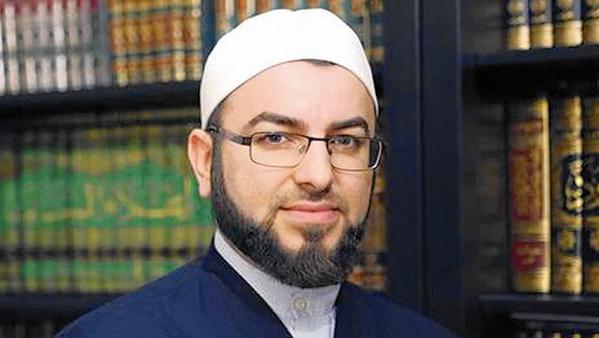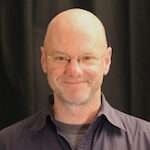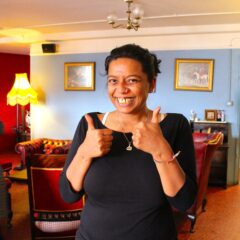This article originally appeared in the Los Angeles Times.
When Salahuddin Barakat founded the Islam Academy in 2013, he located it on the edge of Rosengard, a predominantly Muslim neighborhood that has been a flashpoint in Sweden’s sharpening debate over immigration.
It wasn’t his first choice, he said, “but people in central Malmo said we don’t want to rent to Muslims.”
Like other madrasas, as Muslim religious schools are known, the academy teaches the Koran, traditional Sunni Islamic spirituality, sharia law and Arabic.
Unlike many, it also teaches secular topics. Among them: the Swedish language, nature and sports activities, and social responsibility. The last of these includes interreligious dialogue, especially with the Jewish community.
“All our education programs have the effect of immunizing our youth against radicalization,” said Barakat, a 34-year-old imam, who was sitting in his office above the academy’s prayer hall dressed in a pale, ankle-length robe and skullcap.
“They would never be able to recruit anyone from our group,” he said, “because we equip them with the knowledge and methodologies to counter any argument from groups like Daesh. More than this, our youth are effecting positive change by stopping other youth from joining extremist groups.”
Daesh, of course, is an Arabic nickname for Islamic State, which has made inroads on European Muslim communities, carried out terrorist attacks in Paris, Brussels and elsewhere, and stoked fear and an anti-Muslim backlash among many Europeans.
That polarization has raised the stakes, and the level of difficulty, for those hoping to create stable communities in places such as Rosengard, where immigrants confront the majority culture’s resistance to integrating them into Swedish civic life.
In a country that feels increasingly ambivalent about its role as Europe’s humanitarian superpower, a generation of progressive-minded young Muslim activists is stepping up to help integrate unprecedented numbers of immigrants into Swedish society.
Malmo, the country’s southernmost major city, is the point of entry for most of the immigrants who make their way to Sweden, and many choose to stay there. About 20 percent of Malmo’s 300,000 people are Muslim, making it one of the most Muslim cities in Western Europe. Rosengard, with a population of 25,000, is often the first district that the city’s newest residents call home.
A volatile mixture of social marginalization and extremist religion in some parts of Rosengard sparked riots against the police in 2008 and 2011. News reports of those incidents have created the image of Rosengard as a “no-go zone” in the minds of many non-Muslim Swedes.
Although many immigrants eventually move to other neighborhoods, Gemila al Kuraishi, 31, still calls Rosengard home.
Al Kuraishi moved from Warsaw as a child with her Polish mother and Iraqi father. Today she manages a pair of settlement houses that provide shelter and social services to teenage migrant boys who are orphaned or separated from their parents. They are precisely the sort of youth who might be vulnerable to extremism—and the sort who is likely to be singled out by nationalist and anti-immigrant groups, who view the youths as a threat.
The boys in her settlements don’t deserve pity, Al Kuraishi said, neither for the traumas they have endured nor for the hatred directed toward them by right-wing groups.
“Don’t feel sorry for them,” she said, sitting in a rustic-chic coffeehouse in a shopping mall not far from Rosengard. Young women in expensive-looking hijabs strolled by in pairs or with baby carriages, while blond, tattooed hipsters fussed with their smartphones.
“We have to respect them. Most of them have been working since they were 8 or 9. Sure, they’ve been through things we can’t imagine. But they don’t need to be saved. They need tools”—Swedish-language classes and high school educations, primarily—”to make it in a new society.”
Making it in Sweden and actually feeling Swedish are two very different propositions for the country’s young Muslims, regardless of whether they are religiously observant. It’s a dichotomy that Al Kuraishi has faced personally. Her friends jokingly call her “Gemila Ghetto” for her insistence on living in Rosengard amid the religiously observant immigrants she serves. Yet she sees herself as a modern, secular Swede.
“My dad is still pious, but I don’t define myself as religious at all,” Al Kuraishi said. “I’m too secular to be a good Muslim; I have accepted the ways of this land.”
Still, when non-Muslim Swedes are critical of Islam, she often finds herself defending the faith. Even being a secular Muslim “still sets you apart from the rest of Sweden,” she said.
Native Swedes’ wariness toward the city’s Muslims reinforces the wall of economic, religious and political isolation around Rosengard. Even before the terrorist attacks in Paris heightened tension between Sweden’s Muslim and non-Muslim populations—Muslims account for about half a million of the country’s 9 million people—a backlash against immigrants was already building.
Last year, there were dozens of arson attacks on refugee settlements throughout the country after the Sweden Democrats, a nationalist party formed in 1988, published the addresses of the settlements. Recent polls show the Sweden Democrats winning the approval of about a quarter of the electorate in Malmo, a percentage that puts them neck-and-neck with the Social Democrats, the center-left party that created Sweden’s modern welfare state.
As Sweden and neighboring Denmark tighten border controls in response to the Paris attacks, which killed 130 people in November, the appeal of radical religion for some young Muslims in places like Rosengard is likely to intensify.
“The radicalization of youth is largely based on their being frustrated and made to feel like outsiders,” said Barakat, the imam. “We have to address the social reasons for radicalization if we want to work in the long run for the society we would like to see.”
Barakat, whose family moved to Sweden from Lebanon when he was 7, said some of Rosengard’s religious communities are also doing good work—providing employment training and Swedish-language classes, for example.
For a “no-go zone,” Rosengard has a surprising amount of green space. Rolling, grassy lawns with well-maintained playgrounds surround blocky, high-rise apartment towers. Tidy kitchen gardens flourish next to the main entrance of many buildings.
After the 2008 riots, the Swedish government increased the amount of money available for infrastructure projects in Rosengard, including a new train station that has lessened the area’s sense of isolation. Service groups, many operating under the aegis of Ibn Rushd, a state-funded Muslim community development organization, are responsible for the neighborhood’s landscaping and kitchen gardens.
“Rosengard is Sweden’s future,” said Aladdin al Qut, the organization’s director for southern Sweden.
Part of the young Muslim activists’ strategy for integration is to link Sweden’s Islamic communities with some of the groups that Muslims from repressive societies must learn to tolerate in a culturally diverse democracy. Barakat, for example, is a member of Coexist Malmo, an interreligious organization that includes Jewish, Buddhist and Christian representatives, as well as gay-friendly groups such as the Metropolitan Community Church.
Expanding opportunities for minority participation in the political process figures into their strategy as well.
“Malmo City Hall is similar to Ferguson,” Barakat said, referring to the St. Louis suburb where weeks of civil unrest followed the fatal shooting of an unarmed black man by a white police officer in 2014. “Our government doesn’t look like the community.”
Indeed, in a city where first- and second-generation immigrants compose nearly half the population, Malmo’s 61-member municipal council is overwhelmingly of Swedish descent. With Malmo poised to become Sweden’s first minority-majority city in the next few years, finding a remedy for that imbalance is one of the activists’ key long-term goals—and the bellwether for the country’s future political stability.
“Our focus is on building a generation that can have a conversation with the elite and take part in the process,” Barakat said. “To do that we have to not just educate but challenge Swedish society. In a democracy I have a right to work against policies I don’t like. I am here to remind the majority of that.”
Reporting for this story was supported by the Pulitzer Center for Crisis Reporting.
Nick Street was a senior writer with the USC Center for Religion and Civic Culture.








